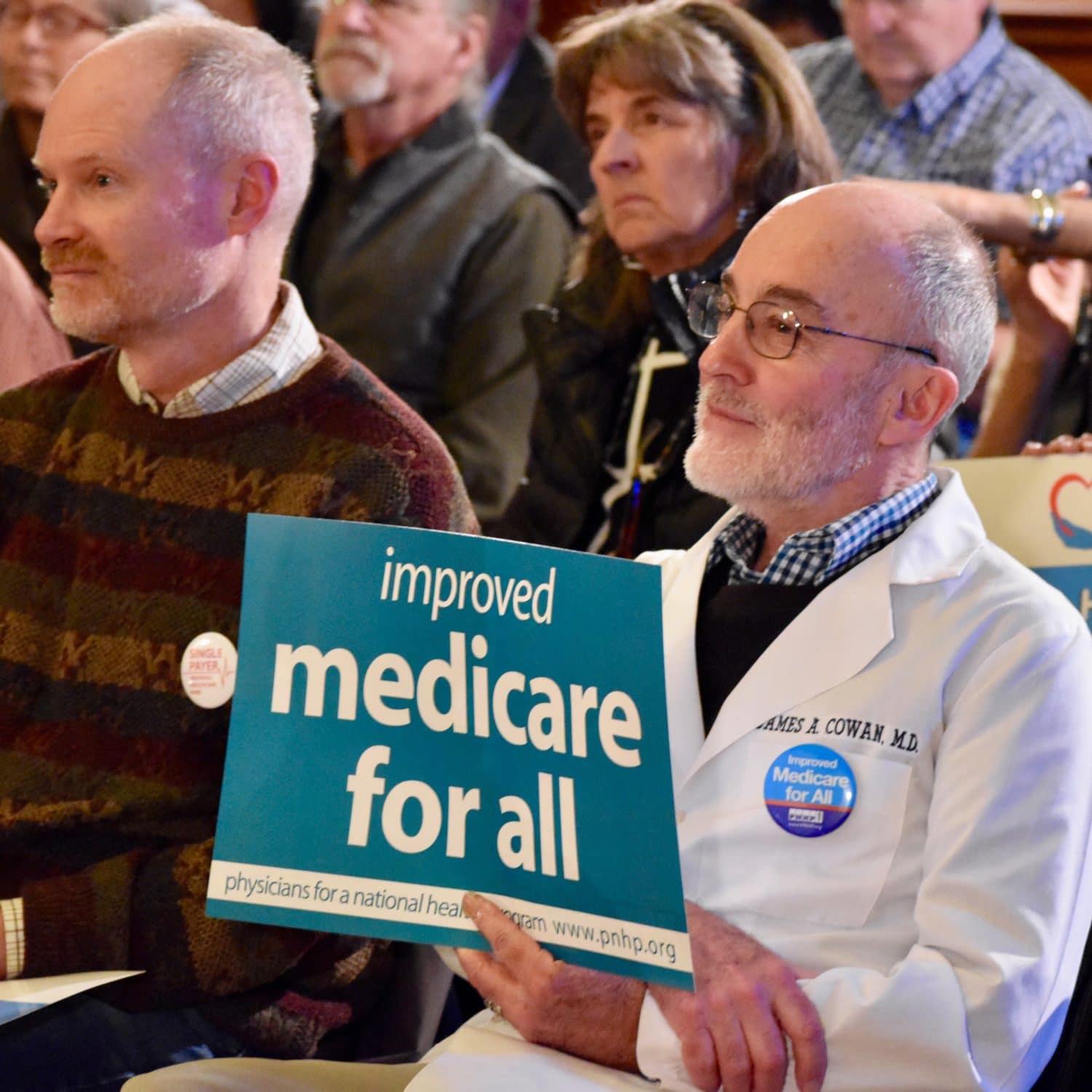Health Insurance 101: Why health insurance cannot work like other insurance and Medicare for All is required
“All taxpayers pay for our national defense against foreign attacks, and this is how we should think about defense against attack by disease. The only way to mount an effective defense against sickness is to remember that every one of us is at risk of sickness, and we should all share the burden of paying for this defense.”
March 29, 2021, 3:00 pm
By Jim Cowan MD MPH
Health insurance is not like other kinds of insurance. Why is this?
First, what is Insurance? It’s a financial product that allows a group of similarly situated people to share the risks of various hazards to which they might be exposed.
The first insurance policies were created to protect the property of merchants and owners of ships who regularly ran the risk of large losses if a ship sank. Insurance policies enabled a ship owner or merchant to join with others who ran similar risks to protect themselves from the possibility of loss of ship and its contents.
This is property insurance and, to be sustainable, it has to meet certain conditions.
First, the consumers of such insurance were, by definition, people who owned property. If a person owned property, then it could be reasonably assumed that he or she had sufficient wealth to insure the property. Insurance policies allowed such people to pool their wealth to protect themselves against the possibility of loss. Those at risk of losing a ship would buy insurance.
Insurance also depended on reasonably small chances of loss. If the majority of ships sank, insurance would have been impossible, because the losses would have exceeded the coverage. Since the majority of ships made it safely to port, they provided the necessary wealth to cover the few that did not. Sinkings were rare.
A third condition for insurance was limited loss. All property has a certain value, and the cost of insurance was limited by that value. One needed only buy enough insurance to cover the value of the property. If the owner had enough wealth to cover the loss, he or she didn’t need to buy insurance at all. The replacement cost of the insured item – a ship and its contents – was known.
These three conditions — the existence of wealth, the small chance of losing it, and limited loss — are needed for sustainable insurance. The problem with health insurance is that it does not meet any of these conditions.
Not everyone owns a ship, but everyone has a body they want to keep healthy – rich and poor. Unlike property insurance, the pool for health insurance is not limited to a few people. The pool is, literally, every body. For health insurance to work, everybody should be insured.
Also, most property owners do not make claims (e.g., for auto accidents, house fires, etc.) in any one year. But everyone needs health care, and eventually, everyone will make a claim, and many people make multiple claims for health care every year. The health insurance companies can only survive under such conditions by insuring large groups of relatively healthy people (which is why health insurance is linked to employment while auto and home insurance is not), or by “cherry picking” only the healthiest individual customers. Prior to the Affordable Care Act, this cherry picking is exactly what the health care marketplace did, with disastrous impact on both cost and access to insurance.
Health insurance also fails to meet the third condition of insurance. The losses it attempts to cover are not limited as auto and home insurance are limited to the replacement cost of a car or house). Everyone inhabits a body that is subject to illness and injury with the potential for losses that might vary in one year from a $50 sore throat to a $500,000 case of leukemia. Because heatlh insurers cannot quantify the cost of an individual’s health care ahead of time, the individual health insurance market is always unstable, with steep premium increases for those who to choose to buy it, and a large pool of at-risk people who do not buy insurance, i.e. they “self insure” because of the cost.
In the end, the taxpayer picks up the tab when these self-insured individuals get sick because only the truly wealthy, and here we are talking about multi-millionaires, can really afford to self-insure and pay their medical bills.
Since health insurance does not meet the three conditions for sustainable insurance, we must think of it less as an insurance product and more as a cooperative effort to protect ourselves from a risk to which everyone is liable. Such an effort must necessarily include everyone — old and young, healthy and sick, rich and poor — in order to create a large enough pool to make the losses sustainable.
This is how we think about defense. All taxpayers pay for our national defense against foreign attacks, and this is how we should think about defense against attack by disease. The only way to mount an effective defense against sickness is to remember that every one of us is at risk of sickness, and we should all share the burden of paying for this defense.
Those who objected to Obamacare’s individual mandate were understandably opposed to being required by the government to buy a product. But if health insurance is thought of as a shared risk rather than a product, then they should not object to participating in the common risk pool that provides the funds for the health care that everyone will eventually need. Requiring people to fulfill their responsibility is simply asking them to do their part to insure a just and healthy society for all.
Support single payer by: 1) using this simple form to email all your federal and state elected officials and 2) testifying in support of state bills.






